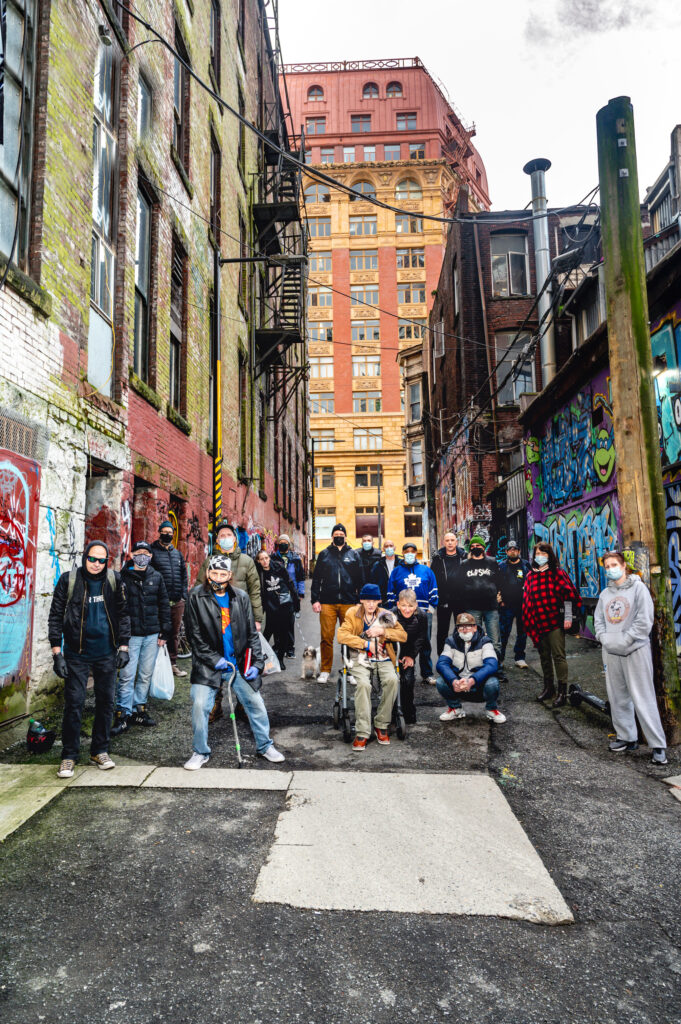VANCOUVER—CUPE 1004 peer workers employed by the Portland Hotel Society (PHS) have successfully concluded negotiations that will give them the same rights and privileges as all workers covered by the provincial collective agreement for the Community Health subsector throughout B.C.
The ground-breaking agreement features a significant wage lift along with benefits including extended health, municipal pension plan coverage, protected seniority rights, and provisions for occupational health and safety, vacation, sick leave, and many more.
“People finally have a chance at life while working here in the Downtown Eastside (DTES). We are finally being recognized as human beings,” said bargaining committee member Doug Everitt, an original employee of Insite.
After the peer workers voted to join CUPE 1004 in March 2020, their initial challenge was being formally recognized as employees deserving of the same rights as all B.C. workers, including the right to join a union. The parties were finally able to resolve the application in January 2021 and confirmed that all the workers had voted to join CUPE.
Bargaining committee member Mark Fraser, who has worked for ten years at the Molson Overdose Prevention Site providing frontline overdose response, says the agreement for peers will hopefully lead to more workers with life experience similar to the people they serve and support being recognized. “It’s excellent that we finally have a deal,” he said. “It’s a first step in properly recognizing peers as employees and respecting their lifesaving work during this unprecedented overdose crisis.”
PHS employs about 35 members who are primarily front-line health workers fighting the overdose death crisis at various DTES locations. These include the Insite supervised injection site, overdose prevention sites and the Opiate Agonist Therapies clinic, which provides the safe supply of narcotics so that users need not rely on the poisoned illicit drug supply, which has killed more than 8,500 people in B.C. since April 2016. CUPE 1004 peers at these sites provide overdose response, connection referral for safe supply, treatment, detox services, and opportunities for other DTES residents to join the workforce and help support their neighbours. There have been no deaths at these sites.



